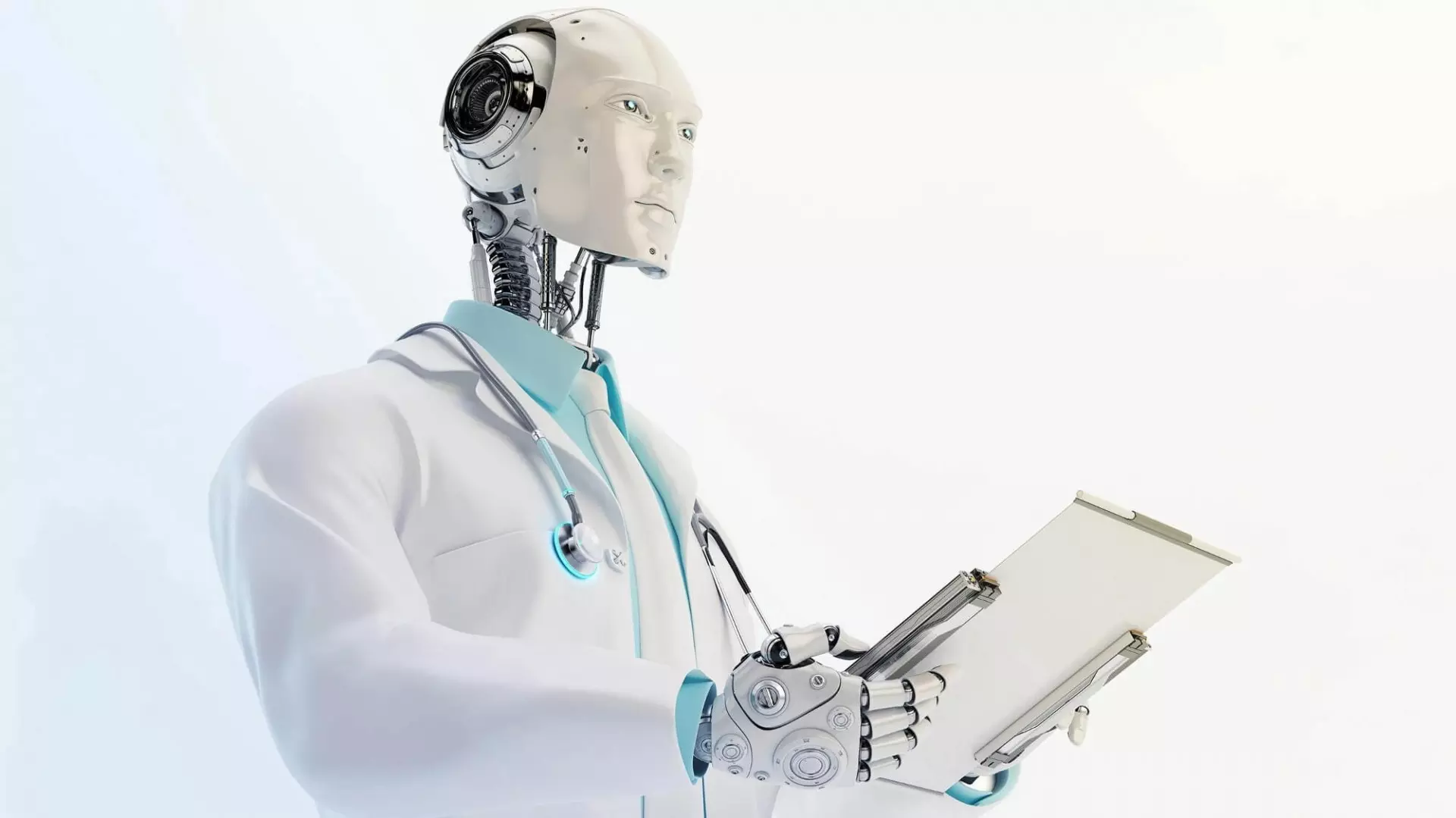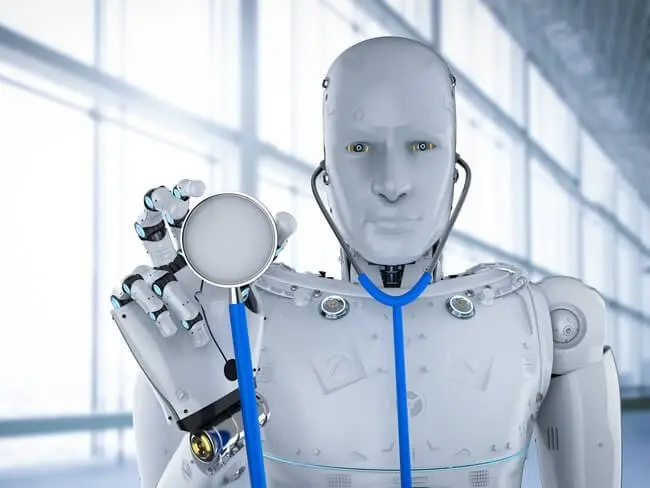Comments (1)
Guy Bisschops
The day will come when patients ask, "Why didn't you listen to the computer...?" AI can see more...can detect accurately...can treat chronic diseases...

The stories about artificial intelligence in medicine commonly revolve around the dystopian notion of replacing the physician.
And this leaves us with that cold, robotic creature that excludes humanity from the equation. What's left is the soulless, lifeless, silicon monster that evokes a sense of fear and makes us even sicker.
Oh, the humanity!
Here's the simple truth:
AI will be smarter than the clinician. It will even become compassionate. However, it will offer the clinician a vast opportunity to reclaim the fundamental, humanistic aspects of compassionate care.
That's the stark reality that we can either accept or deny. The other reality that helps put this in perspective is data itself. (Yes, a subtle anthropomorphic reference.) In some ways, data and humanity are on divergent paths—this is particularly true in medicine.
The assimilation of today's data stream (or should I say fire hose) is simply greater than human capabilities. From clinical trials to complex genomics, the human brain can just go so far and so fast to place this life-saving information in a clinical context.
Yet, for most, it's information that's just lost to complexity. Tragically, it's this very complexity that shared both an emotional and cognitive border with today's tremendous problem of physician burnout.

Complexity will not go away. Data will continue its assault on our cognitive skills.
A solution is to recognize that the role of the clinician is shifting to something that might appeal to Hippocrates and patients. It's the role of the compassionate clinician—empowered by technology's cognitive prowess—to provide the basis for a new medical paradigm.
Technology, or at least technology in its future iteration, isn't the basis for today's physician dissatisfaction. It's the basis for smarter and richer clinical engagement. And the time has come for the clinical community to recognize that it's not "business as usual" but a fundamental shift in roles.
Yet it still seems that many physicians have "dug in" and wish to own both the cognitive and the compassionate domains. Good luck drinking out of that fire hose.
The day will come when patients ask, "What did the computer SAY?" And that's not far off. The next comment out of the patient's mouth is equally revealing: "What did the doctor DO?" It's this partnership (dare I say, of equals) that give us a sense of tomorrow's brilliant and compassionate physician.
The day will come when patients ask, "Why didn't you listen to the computer...?" AI can see more...can detect accurately...can treat chronic diseases...
John is the #1 global influencer in digital health and generally regarded as one of the top global strategic and creative thinkers in this important and expanding area. He is also one the most popular speakers around the globe presenting his vibrant and insightful perspective on the future of health innovation. His focus is on guiding companies, NGOs, and governments through the dynamics of exponential change in the health / tech marketplaces. He is also a member of the Google Health Advisory Board, pens HEALTH CRITICAL for Forbes--a top global blog on health & technology and THE DIGITAL SELF for Psychology Today—a leading blog focused on the digital transformation of humanity. He is also on the faculty of Exponential Medicine. John has an established reputation as a vocal advocate for strategic thinking and creativity. He has built his career on the “science of advertising,” a process where strategy and creativity work together for superior marketing. He has also been recognized for his ability to translate difficult medical and scientific concepts into material that can be more easily communicated to consumers, clinicians and scientists. Additionally, John has distinguished himself as a scientific thinker. Earlier in his career, John was a research associate at Harvard Medical School and has co-authored several papers with global thought-leaders in the field of cardiovascular physiology with a focus on acute myocardial infarction, ventricular arrhythmias and sudden cardiac death.
Leave your comments
Post comment as a guest